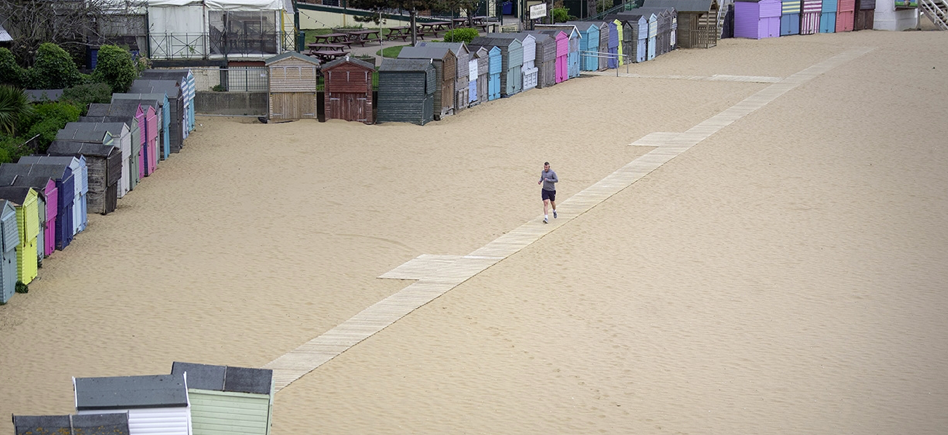The majority of adults in England think exercise is now more important than ever, with walking proving the most popular activity. Almost two thirds of adults consider exercise to be more important than ever during the current coronavirus (Covid-19) crisis.

Research we commissioned from Savanta ComRes shows the impact social distancing and guidance to stay home is having on the nation’s attitude to exercise.
Carried out earlier this month, after the government announced its social distancing guidelines, the new figures show 62% of adults in England say it’s more important to be active now, compared to before coronavirus
The majority of people (65%) also believe exercise is helping them with their mental health during the outbreak.
Sport England's Chief Executive Tim Hollingsworth is glad to see people’s physical and mental health being so highly regarded in this time.
“This is a new and challenging time for everyone and it’s clear from this early research into the nation’s activity levels that there is significant disruption to how people usually seek to build physical activity and exercise into their lives,” he said.
“It’s heartening to see therefore that for many the importance of it has increased – and in particular that they see the benefit to their mental as well as physical health and wellbeing.”
Differing Activity Levels
While the majority are realising the importance of exercise to their health, the research also shows that some people are finding it harder to be regularly active than others – including older people, those on a low income and those in urban areas.
-
Age: Younger groups are more likely to have done more activity in the past week - 43% for those aged 16-34 vs 22% for those aged 55+
-
Social background: People in higher socio-economic groups (ABC1) are more likely to have done more activity in the past week than those in lower socio-economic groups - 34% for ABC1 groups vs 27% for C2DE groups
-
Urban vs rural areas: People in urban areas are more likely to have done less activity in the past week than people in rural areas - 43% of those living in urban areas vs 53% of those living in rural areas.
Just three days after the social distancing guidelines were put in place, Sport England launched their Join the Movement campaign, encouraging people to #StayInWorkOut and providing people with resources on how to stay active during this period.
The campaign is backed by National Lottery funding and supported by the government, with their messaging around exercise seeming to cut through with the public as 53% of adults in England agreed that they’ve been encouraged to exercise as a result of the once-a-day outside exercise provision
Despite this cut through, over the coming weeks Sport England will be stepping up their campaigning to help and encourage those finding it hardest to build activity into their day.
“Alongside the recognition of being allowed outside to exercise under strict conditions, the call to #StayInWorkOut has clearly resonated with a lot of people,” Tim added.
“At the same time we have to collectively recognise that for some this is proving very difficult – people who are on low incomes or living alone, for example.
“Our work and our campaigning will continue to do everything possible to support and motivate everybody to stay active, which is more important now than it has ever been.”
Unsurprisingly, the restrictions on movement have led to new habits forming, with walking, cycling and home workouts now the most popular forms of exercise.
Walking tops the standings with 59% of adults using their daily activity to go for a walk, while 44% of people are doing home-based activity (including 23% doing online workouts), and 14% are using informal play and games to keep active.
Cycling is also proving to be a popular family activity, with 18% of those who are cycling, doing so with children in their household.
While 20% of those doing home-based fitness online are doing it with children in their household.